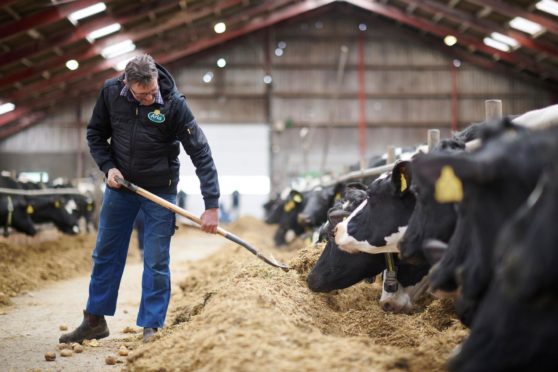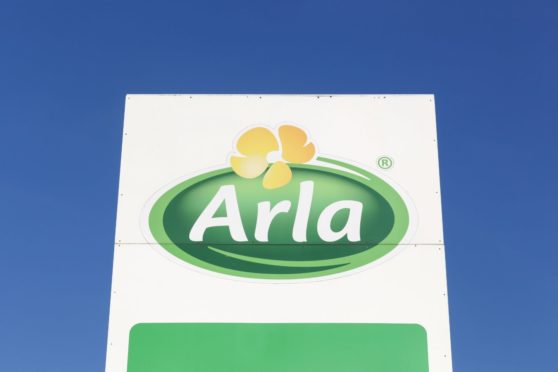Dairy giant Arla has revealed the average carbon footprint of its suppliers’ farms and a five-point plan to help farmers reach carbon net-zero by 2050.
The European dairy farmers’ co-operative, which produces brands including Lurpak, Anchor and Cravendale, carried out climate checks on 8,131 of its members’ farms across seven European countries, including the UK, in 2020.
Farmers were asked to submit data in response to 203 questions covering a range of topics including the number of animals on the farm, feed composition, the use of fertiliser, and the use of electricity, fuel and renewable energy.
The findings, which were validated by external assessors, show the average Arla farmer produced 1.15kg of CO2e (carbon dioxide equivalent) per kg of milk produced – this compares to a global average of 2.5kg of CO2e per kg of milk, as stated by the Food and Agriculture Organisation (FAO).
Arla chairman, Jan Toft Norgaard, welcomed the results of the climate checks and said they had helped identify five ways the co-op’s farmer suppliers can lower the carbon footprint of dairy.
These are: better feed efficiency to improve milk yield; precision feeding to reduce surplus protein in feed rations; a healthy and long life for the cow to improve milk yield; precise fertiliser management to reduce nitrogen surplus from feed production; and better land use management to ensure better crop yields.
“The data shows that all types of farms can achieve tangible results if precision farming is increased in these five areas,” said Mr Norgaard.
“This will help us significantly going forward both to lower our CO2e footprint and for future investments on farms to help meet our ambitious climate goals.”
Arla has set a target of reducing its CO2e emissions by 30% between 2015 and 2030 and to become net-zero by 2050.
Mr Norgaard said the initial results from the climate checks would act as a baseline for its dairy farmer suppliers.
“For us, the number is not a final result but a baseline from where we need to improve,” added Mr Norgaard.
“The climate checks is a tool to guide our next steps, to accumulate more insight and transparently measure our progress going forward.”
Arla’s director of agriculture in the UK, Alice Swift, said the findings would help improve the common understanding of what works to reduce the carbon footprint of farms.
She said: “It is a myth that farms of a certain system, type, size, breed or location are in amore favourable position to lower their footprint than other farmers with different conditions.
“Lowering your footprint is all about finding the right balance between the resources that go in and the value that comes out. The data shows that all types of farms can achieve tangible results if precision farming is increased in the five areas we have identified and it will often benefit both the climate and the farm’s longer term profitability.”

